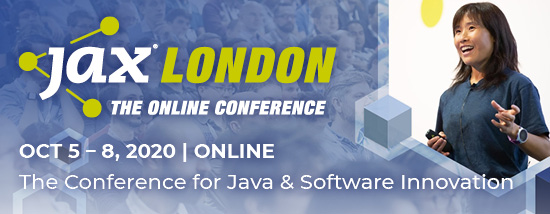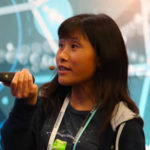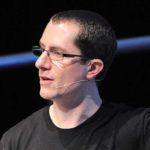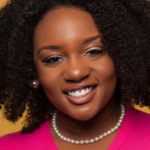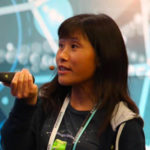Today’s Woman in Tech: Ashley Miller, Senior Director of Engineering at Datadog
 Ashley Miller is a Senior Director of Engineering at Datadog, and has previously held engineering roles at BuzzFeed and Birchbox.
Ashley Miller is a Senior Director of Engineering at Datadog, and has previously held engineering roles at BuzzFeed and Birchbox.
When did you become interested in technology?
Tech was always around when I was growing up. My dad is a self-taught engineer and we were always tinkering with computers. So I was replacing hard drives and motherboards at 7. As I grew up, I kept following this interest and was always looking to learn more.
How did you end up in your career path?
I’ve had a fairly non-standard career path. I studied environmental engineering in college, but I started working at the help desk on campus and found I really loved learning about computers and how they work. I took internships where I got to code, and when I graduated I joined a political campaign due to my interest in social issues.
This led to a job in Congress — and I was even on the path to law school — but when I was offered a job at a startup, I couldn’t turn it down. I found that startups had all the things I liked about being on the campaign — the speed, the comradery, the mission. That launched me on the path of working my way to becoming a software engineer and eventually leading engineering teams for other NYC startups.
Did you receive support from your family and friends? Do you have a role model?
My dad was the first person who gave me support and encouraged my interest in technology. Luckily in every job I’ve had, there have been people who were super supportive and who I learned from.
When I was at Birchbox, Liz Crawford was the CTO. She was the first female CTO I worked for and was definitely a role model for me.
Did someone ever try to stop you from learning and advancing in your professional life?
I’ve never faced this kind of roadblock, but something that women often experience in the tech industry is a skepticism about engineering. Many women are led into product management roles, for example. You have to be intentional about focusing on engineering and seeking out opportunities to work on the back-end rather than the front-end.
The proudest moments for me are when I’ve been able to give someone their first opportunity in tech, and then seeing them go on to be successful over their career.
A day in Ashley’s life
I’m currently a Senior Director of Engineering at Datadog, a cloud monitoring and security platform. No day is the same — I work with a number of engineering teams and spend a lot of time meeting with them and understanding what they’re working on at a technical level. As a manager of engineers, I’m often acting as a connector — helping different teams collaborate, making sure everyone understands the broader context, ensuring goals are aligned across the organization.
I also spend a lot of time on recruiting — we’re always hiring at Datadog, so interviewing candidates and helping employees develop their careers is a big part of the job.
What are you most proud of in your career?
The proudest moments for me are when I’ve been able to give someone their first opportunity in tech, and then seeing them go on to be successful over their career. Hiring someone and watching them get promoted, or succeed in the future at any company, is an awesome feeling.
Why aren’t there more women in tech? What’s your take on that?
People will often bring up the “pipeline” problem, which is definitely true, but another problem is the “leaky bucket” — women who enter the industry but don’t stay, or don’t progress in their careers.
We’ve made progress in things like bringing more women into Computer Science programs and internships, but we need to do more work to create opportunities for women to reach the senior ranks once they’re in the industry.
Could you name a few challenges (or obstacles) women in tech face?
A big obstacle is that too many people assume you’re not in tech, or not in a senior role. Sometimes at a conference, someone will ask me if they can speak to an engineer, but I am the senior engineer. Changing peoples’ assumptions is difficult, and takes time, but it’s a big obstacle we need to work on as an industry.
Would our world be different if more women worked in STEM?
The question of what products get built, or don’t get built, has a big impact on the world. And it goes beyond women in tech — it’s about diversity across race, age, educational background, etc. You always want to find the best talent, whatever package it comes in. With better talent you can build much better products.
The question of what products get built, or don’t get built, has a big impact on the world.
The discussion about diversity is gaining momentum. How long will it take to see results from the current debate?
This is less a question about when, but about putting in the work and committing to helping people throughout their careers.
It takes time for people to get jobs, get promoted, and get into senior positions — and as this process takes place, it yields more results, with more people getting jobs and in turn hiring other people. If the industry makes this commitment and puts in the work, the results will come.
What advice (and tips) would you give to women who want a tech career?
One piece of advice would be that working as a software engineer is very different from doing Computer Science in an academic setting — so if you enjoy solving problems, give it a try. The truth is that being an engineer is a great job. You get paid to solve problems and build new things, which is a really rewarding career.
More Women in Tech:
- Women in Tech: Molly Mackinlay, Product lead at IPFS
- Women in Tech: Liudmyla Taranenko, AI engineer at MobiDev
- Women in Tech: Viktoryia Verasava, TypeScript Developer at McMakler
- Women in Tech: Anke Sperger, internal sales representative at Axis Communications GmbH
- Women in Tech: Stefanie Khan, Global Data Analytics Leader at Xerox
For even more Women in Tech, click here
The post Women in Tech: “Changing peoples’ assumptions is difficult” appeared first on JAXenter.
Source : JAXenter

